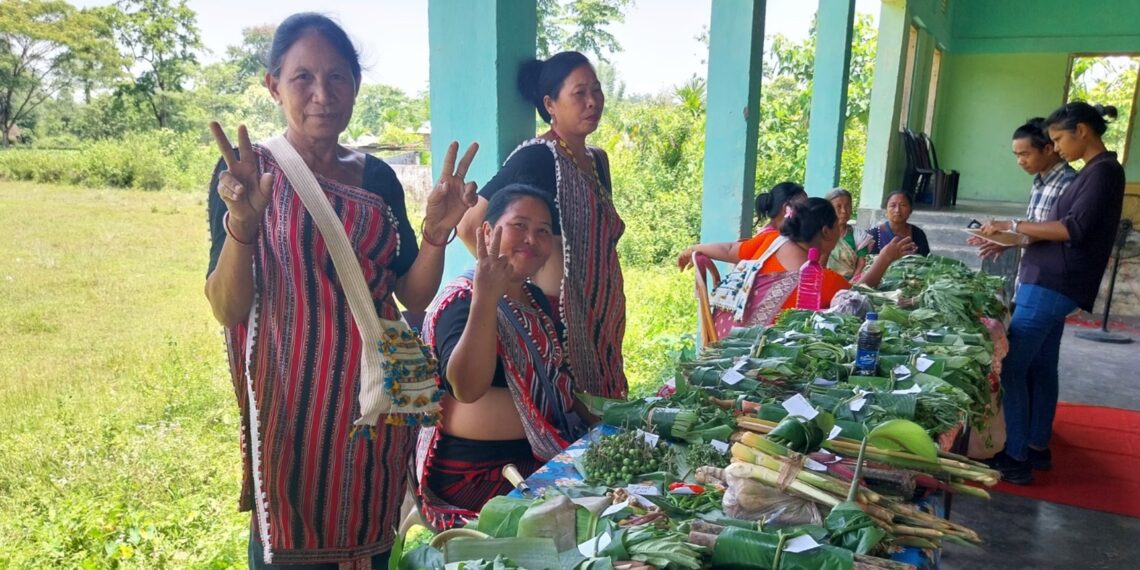GUWAHATI: A total of 30 indigenous women from five villages across Kohora in Karbi Anglong, gathered at Chandrasing Roongpi village to participate in an exhibition-cum-competition to commemorate the International Day for Biological Diversity.
The participants from five villages – Phumen Engti, Chandrasing Rongpi, Englepathar, Khailun Terang and Sarbura Singnar – exhibited a total of 101 species of wild edibles and herbs in the event.
All the wild edibles were collected by the participating women from within their respective village and community forests.
Apart from sharing their traditional knowledge on each of the exhibited items, the participants also informed the gathering about their names, niche environment, uses, present status, et al.
Organised by Aaranyak, a biodiversity conservation organisation, in association with Chandrasing Rongpi Memorial High School and Pirbi- a biodiversity business initiative, the event’s objective was to sensitise the village folk about the richness of their surroundings.
“Preserving and conserving is an integral part of human nature, so we should always take care of our biodiversity if not life on Earth will be difficult,” said Chief Guest Dibyajyoti Doley, Divisional Officer, Dept. of Soil Conservation, Kohora Division, Karbi Anglong
During an interactive session initiated by Dr Sarma, the participants shared information on various wild edibles which are rare in these villages, medicinal plants and their medicinal properties.
An assessment was also carried out on their interest for ex-situ conservation of such rare and disappearing species of wild edibles in their homestead of agroforestry area or in the community forests of the village.
Dr. Sarma said, “Great learning from the women participants on over 100 wild edible plants who educated us about the niche environment of each of the plants, their phonology, traditional Karbi culinary, health benefits and observations on availability. It was an open university where indigenous Karbi women were professors”.
The women showed their deep interest in ensuring the richness and access to such food biodiversity for future generations.
After the interactive session on rare wild edibles, the women initiated a discussion on economic and educational opportunities as well as to make strategic life choices in decision-making in different livelihood opportunities.
Out of the villages that participated, the first prize was awarded to Chandrasing Rongpi, while the second prize went to Sarbura Singnar, and the third prize was presented to Phumen Engti.
Additionally, consolation prizes were presented to Khailun Terang and Engle Pothar.
One of the participants, Moina Engtipi from Khailun Terang village said, “Events like this are very informative and provide us learning opportunities related to wild edibles and their value in Karbi tradition and culture.”
Another participant Kave Rongpipi also shared that, through this event they could learn and share information related to wild edibles, unknown herbs, their uses and disappearing trends.















